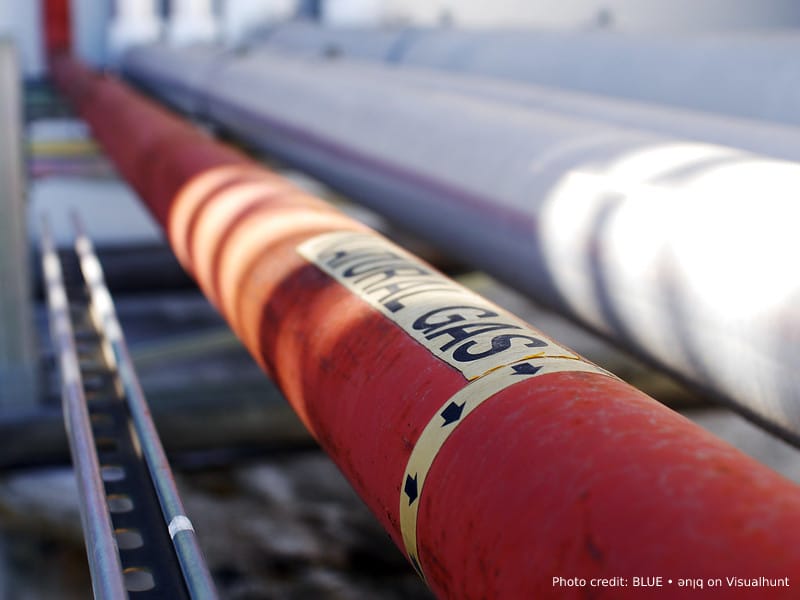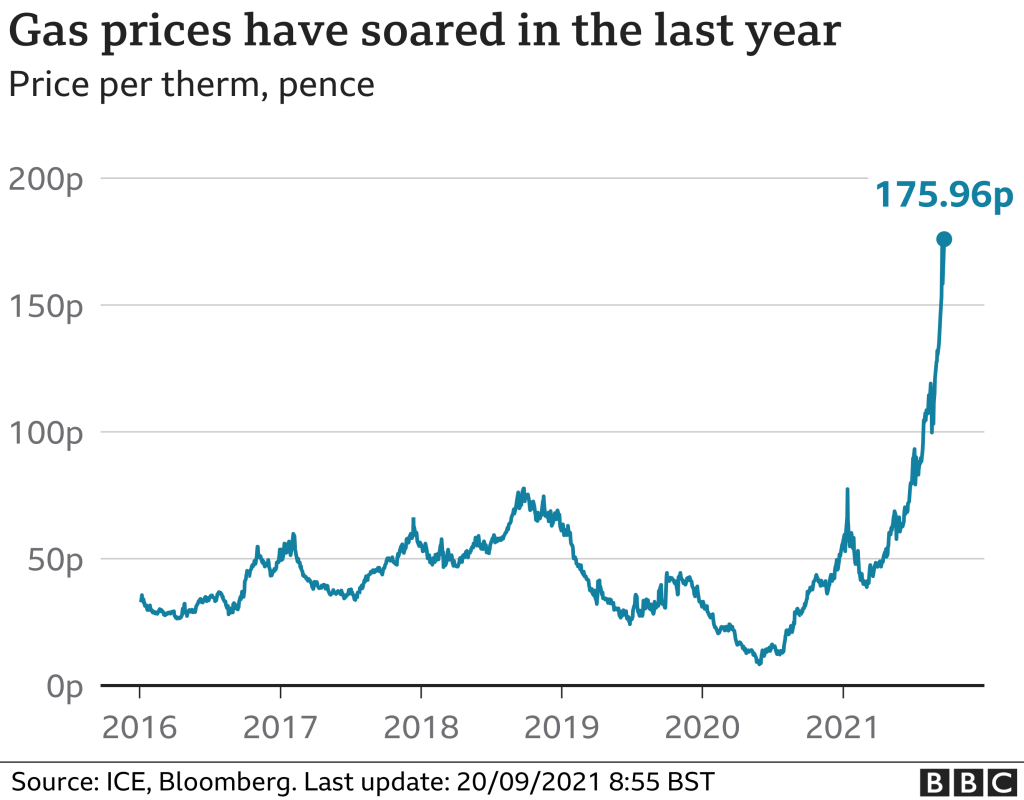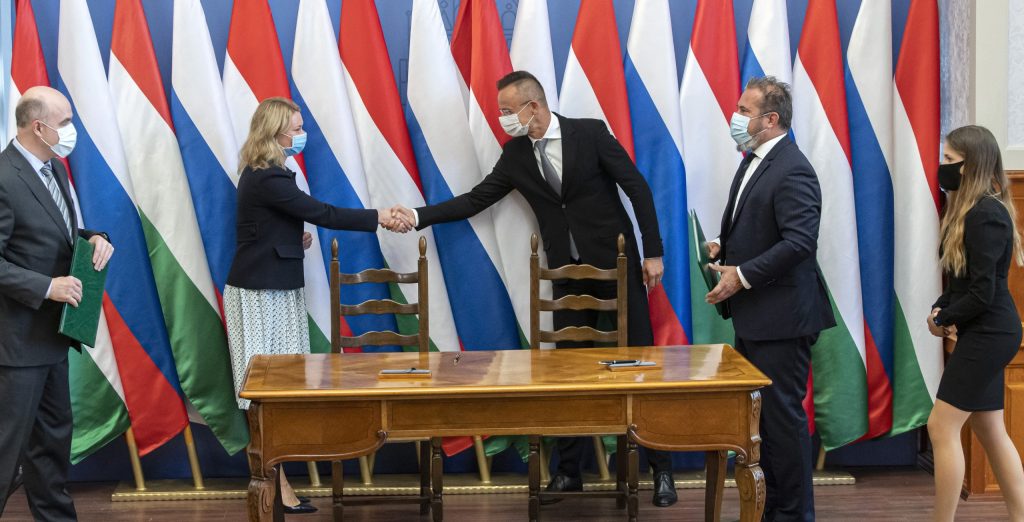
Verzija teksta na srpskom jeziku autora Predraga Grujića dostupna je na sledećem linku: Tekst na srpskom jeziku.
Reliable gas supply, especially during winter, is one of the more serious problems most European states face. Last year, the energy crisis seemingly affected the EU and NATO countries the most, seeing that the largest quantities of this energy source come to Central and Western Europe from the Russian Federation – a country with which relations have been quite volatile and strained for years. Existing gas pipelines and signed contracts thus unexpectedly became the field of (geo)political and economic struggle, thereby forming the core of the issues associated with the transportation of this energy source.
Namely, since the beginning of 2021, the price of gas on the global market increased by a whopping 250 per cent, which understandably upset the European public, as they were tasked with paying drastically higher heating bills. Experts cited several reasons for such an unpredictable fluctuation of price, some of which were harsher climatic conditions at the beginning of the year leading to greater gas consumption, and the increased demand by Asian countries, among which China stood out in particular.
The price increase was also influenced by gas pipeline maintenance issues in Norway, as well as the lack of wind that would be used as an alternative to natural gas. This situation soon alarmed European officials, who pointed Russia out as the main culprit and put it at the core of the problem. As expected, the focus was on the energy company Gazprom, the global leader in natural gas production, the majority of whose shares are owned by the Russian state.
And while on the one hand, statements by German energy experts claimed that Gazprom fulfilled all the agreed-upon obligations, on the other hand, this Russian state-owned company did not increase the delivered amount, despite Europe clearly needing more gas. Certain media outlets hence accused Moscow of practically and consciously using gas to try to prove that the European Union depended on the Russian Federation, which once again sparked interest in the contracts Gazprom offers its customers.
The issue of contracts and blackmail potential was just one side of the coin. Another vital aspect of the energy crisis regarded the existing and future gas pipelines, the prime example being the Nord Stream 2 project – a conduit connecting Russia and Germany across the Baltic Sea. Main political motives and aims of this project were ostensibly to exert pressure on Ukraine and exclude it from gas distribution, as this country is located on the transit route. The President of Ukraine, Volodymyr Zelenskyy, thus warned that Russia abused Nord Stream 2 and used it as a powerful geopolitical weapon. Vladimir Putin, the Russian President, disputed this claim by stating that this gas pipeline was strictly an economic, not a political endeavour. Moscow's actions nonetheless resulted in sanctions by the United States of America, which were imposed on the Russian Federation, among other things, due to the expansion of soft power through the construction of this conduit. The sanctions remained in force until US president Joe Biden withdrew them due to poor efficiency and the fact that the project had already been in its final stages.

On September 10, 2021, Moscow officials announced that the construction work on the pipeline was completed and that only administrative tasks awaited. By all accounts, they did not run smoothly since one of the main obstacles to the official pipeline commissioning was the violation of environmental norms and regulations, whose importance has significantly grown in the previous decades. The German Green Party was, therefore, strongly contesting this project, which, according to their opinion and in addition to dealing with environmental issues, potentially allowed Russia to blackmail Europe in the future.
The majority of the population, however, apparently did not think accordingly about the environmental policy but about the impending winter and the money necessary to cover heating costs. For Russia, such signals of concern from the Western European public were more than welcome, so one could say that they used the latest gas crisis to accelerate the process of setting in motion the controversial gas pipeline, which would bring them huge financial but also geopolitical benefit.
In this regard, the German Bundestag refused to issue a certificate for launching Nord Stream 2 in mid-November. As stated, it would not be approved until it complied with all German legal regulations. But even then, Gazprom would have to postpone putting the pipeline into operation because the European Commission would nonetheless make the last call. Precisely because of this, experts estimated that the project would not be operational before March 2022. Some sources also claimed that Russia was not only using the current situation to obtain the operating permit for the new gas pipeline faster, but also to force Europe to establish long-term cooperation with the Federation energy-wise.
In the natural gas market, two contract types are most common – short-term contracts, also called spot contracts, and long-term contracts. EU countries generally opted for the spot contract, which implied smaller, precisely determined quantities of gas usually delivered shortly after a contract had been signed but did not imply further cooperation or future obligations. The President of Russia, Putin, proclaimed this type of business one of the root causes of the gas crisis and accused the European Union of being the main culprit for the sudden price increase. However, it was clear that as a distributor, Russia benefited more from strategic, long-term contracts signed for a period of 10 to 25 years. Kremlin would thus vastly expand its influence in Europe while simultaneously reducing the impact of the USA, which is also trying to break through in the liquefied petroleum gas trade.

This claim was supported by the fact that at the end of September 2021, the Russian Federation and Hungary signed an agreement on stable gas supply for the next 15 years. This event sparked anger with the Kyiv officials because the route through which the gas would be distributed bypassed Ukrainian territory; instead, one branch mimicked the Turkish Stream, also passing through Serbia, while the rest of the gas would be delivered to Hungary via Nord Stream. Ukraine would, thus, be deprived of the weighty financial resources it would otherwise receive for transporting gas through its territory. Taking everything into account, it was clear that Russia was indeed trying to achieve the maximum economic, but also political benefit by presenting itself as the saviour from the crisis caused by the increase in gas prices while simultaneously causing financial damage to some of the rogue former Soviet states.
Relying on Gazprom's long-term contracts, however, was something countries should avoid according to one line of thought, shared by the European Commissioner for Climate Action, Frans Timmermans, who stated that recent events on the market indicated that countries should switch to renewable energy sources. At that moment, such topics were clearly not in the limelight of the citizens of Western Europe. Coal could be one of the alternatives, but the rise in the price of gas naturally led to an increase in the price of this energy source, which was certainly promoted by new environmental regulations. Many countries promised their citizens aid packages, both in case of extortionate gas bills and extremely low temperatures. For example, in late October 2021, Moldovan authorities already introduced a state of emergency for those reasons, which was in force for ten days until a new contract was signed with Gazprom.
On the other hand, the previously mentioned Nord Stream 2 would sooner or later be put into operation, certainly causing a series of consequences both in the economic and political sphere. The situation could nonetheless be further complicated, given that the leader of the German Greens, Annalena Baerbock, was elected Minister for Foreign Affairs. Her attitude towards the mentioned gas pipeline has been quite negative, both due to her opposition to the use of fossil fuels and her empathy towards Ukraine. Since it was indicative that in this case too, economy and politics are inextricably linked, it could be concluded that Russia has really been trying to make Europe its energy hostage with long-term contracts and the newly-built gas pipeline.
Translated and proofread by: Milica Milosavljevic
Author: Predrag Grujic


